 |
 |
 |
Chairmen
Norris
Hepworth 1905-14
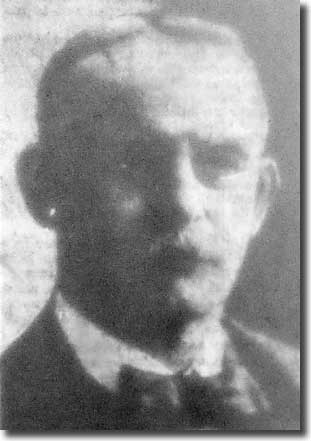 The
lifespan of Leeds City Association Football Club was a mere 15 years and
the entire time was spent labouring under the yoke of dire financial problems.
If not for the leadership and benevolence of their inaugural chairman,
Norris Hepworth, the club might never have got off the ground as a serious
concern and almost certainly would have gone out of business on several
occasions.
The
lifespan of Leeds City Association Football Club was a mere 15 years and
the entire time was spent labouring under the yoke of dire financial problems.
If not for the leadership and benevolence of their inaugural chairman,
Norris Hepworth, the club might never have got off the ground as a serious
concern and almost certainly would have gone out of business on several
occasions.
Over his decade-long association with Leeds City, Hepworth poured a small fortune into the club's coffers; when he died in February 1914, the Yorkshire Evening Post reported, 'For several years past Mr Hepworth has financed the club out of his own pocket, and at his death he was the sole debenture holder. The Leeds City Club's indebtedness to Mr Hepworth may be set down at a sum not far short of £18,000.'
Hepworth could afford to be generous; the family business, clothing firm J Hepworth & Son, brought him great wealth. Norris' father Joseph was a self-made man, building up the firm from scratch and Norris was every bit as hard working. He took the company on to new heights as Managing Director, a role he filled with aplomb for 23 years.
Norris Rhodes Hepworth was born in 1857 in Lindley, Huddersfield, birthplace of his father. Joseph Hepworth married Sarah Rhodes in 1855 and Norris was the first born of the family's three sons and four daughters.
Joseph prided himself on a puritanical work ethic, leaving school at ten to work locally at George Walker's mill. Conditions were appalling and he later described them as being unfit for a dog. He once told the Press, 'My grandfathers on both sides were well to do men, but my father was a working man, and I commenced to earn money when I was ten as a half timer in a woollen mill at Lindley. I soon tired of this, but my father, for the reason of course that my earnings were of consideration, would not hear of my leaving.'
Joseph continued to toil long hours in the mill until he reached the age of 16. He laboured from six in the morning until half past twelve one week and from half past one to eight o'clock the next week alternatively, receiving at the end of each seven days the princely sum of 1s 6d.
When he was 16, Joseph left the woollen mill to take up textile setting, practicing the trade for several years at various mills around Huddersfield. Exhibiting the great natural acumen which he always showed, Hepworth quickly came to appreciate the full value of education, and bemoaned the fact that he had never fully exploited the opportunities available to him in that respect. He once said, 'From that moment, I devoted myself heart and soul to making myself proficient as a business man. For twelve months or more I had a very hard struggle and many is the time when, as a traveller, that I have been packing my samples till nearly midnight and have been up before five the next morning to catch my train.'
In 1864 Joseph Hepworth brought his young family to the city of Leeds. With one of his brothers-in-law, James Rhodes, he set up business in Briggate and about a year later launched out on his own account in the wholesale clothing business. The next four years were probably the hardest of his career. Despite making some headway he continued to suffer bitterly disappointing reverses.
'About this time,' he said, 'my son Norris joined me, and, tired and disheartened by the constant losses through insolvent tradespeople, we determined to open shops of our own and embark on the retail business. That brought down upon us a pretty general boycott, and matters became ten thousand times worse. During one of our most troublesome times a friend remarked that the Fates were evidently against me, and I had better give in. My reply was, I never will, and I never did.'
J Hepworth & Son gradually attained the status of the UK's largest clothing company. It went public in 1948 and in 1982 acquired Leicester-based retail store chain Kendall & Sons. In 1986, after introducing the Next range of stores, the name of the Hepworth organisation was formally changed to Next plc.
As the oldest son, it was only natural
that Norris should enter the family business and he quickly became his
father's right hand man. Getting the business off the ground was no easy
matter and they had to face years of scraping a scant living. However,
the two men persevered and their fortunes changed significantly when they
pioneered the development of a chain of retail shops to market the garments
made in their huge workshops in Wellington Street. 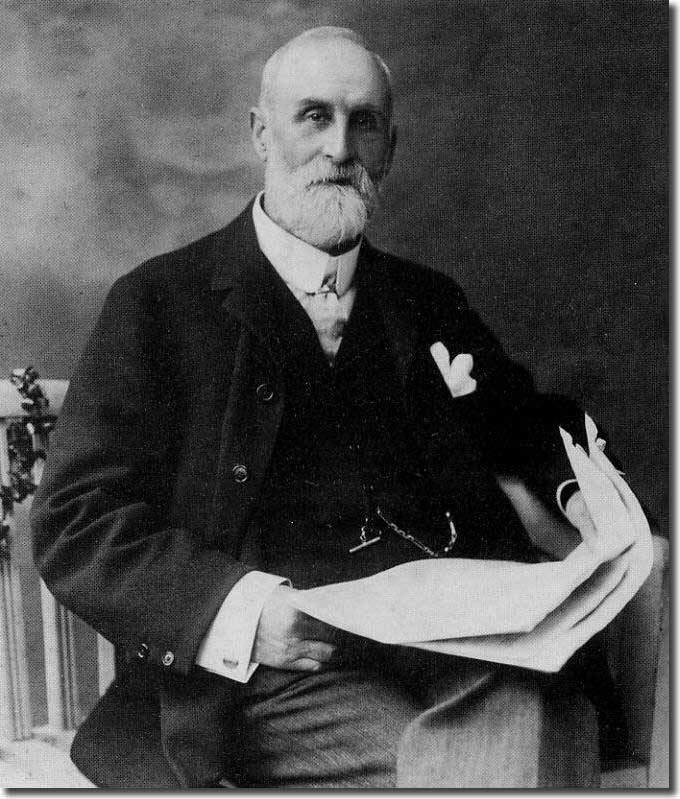 The
firm grew rapidly and by 1881 employed 500 people making quality three
piece suits.
The
firm grew rapidly and by 1881 employed 500 people making quality three
piece suits.
That same year the firm's factory in Claypit Lane was rebuilt after being burned down, at a cost of £30,000. A year later the firm was converted into a limited company with a capital of £380,000.
During the 1880's they decided to sell directly to the public and in 1891, shortly after a move to Headingley, they opened a new factory in Claypit Lane; by this time there were 107 shops, employing more than 2,000 workers. The firm's success was based on 'piling them high and selling them cheap'.
The Yorkshire Evening Post: '(Norris) became associated with the firm which his father had founded, when a youth in his teens, and in 1885, soon after the establishment of the clothing factory in Wellington Street, he was taken into partnership. Twenty-three years ago (1891) the firm was converted into a limited liability company, and ever since that time, Mr Norris Hepworth had been the Managing Director.
'It was as a salesman that Mr Hepworth first made his mark. The business at that time was comparatively small, and the orders he took when travelling - said to be among the best the firm ever received - helped materially towards the prosperity which the concern afterwards enjoyed. He was also to a large extent responsible for the establishment of the firm's many retail shops in various parts of the country.
'Although in later years Mr Hepworth had not taken a very active part in political life, he was at one time an ardent Liberal, and for three years sat in the City Council as a representative of the North West Ward. He was defeated on putting up again, and never sought re-election. He was also chairman of the directors of the Yorkshire Liberal Newspaper and Publishing Company (Ltd), which took over the Leeds Daily News, and he was largely instrumental in changing the politics of that newspaper.'
Hepworth remained a central figure in the local Liberal party, and in February 1905 presided over the selection committee which nominated Robert Armitage, Lord Mayor of Leeds, as their new representative.
Hepworth always took an active interest in local sport and he was a prime mover at Holbeck Rugby Club. After that club's demise in 1904, it allowed a new football club to assume control of the Elland Road ground.
When Leeds City Association Football Club was incorporated, Hepworth was elected the first chairman at a meeting of the 15 directors at the Griffin Hotel in the city on Monday, 10 April 1905, as the club prepared its bid for Football League membership. Hepworth commented that he was pleased to have a ground 'in the centre of the working classes'.
Hepworth championed City's application at the League's general meeting on 29 May 1905 when the decision was taken on which clubs should be admitted to the League. He promised football a good reception in Leeds if the club were elected, and his words had the intended effect for City came top of the poll, finishing above Burslem Port Vale and Chelsea, who were also admitted into the Second Division.
Norris' father served as Lord Mayor of Leeds in 1906 and one of his official duties was opening Leeds City's new grandstand when it was completed in November of that year. Norris presided over the ceremony, joking that he 'had known the Lord Mayor a long time, and from early days had good reason to remember him very well'.
Joseph Hepworth passed away in October 1911, aged 77, leaving Norris to run the family firm single handed. In real terms it made little difference, for in effect he had taken up the reins fully some time previously, with Joseph playing a less active part.
After showing much promise in its early years, the Leeds City Club fell on difficult times, constantly undermined by a lack of financial resources. It had set off optimistically, if somewhat naively, in April 1905 with capital of £10,000 raised from its shareholders, but that sum was soon found to be woefully inadequate.
The annual meeting of City's shareholders was held at the Salem Hall on Hunslet Road in Leeds on 25 July 1910 against a backdrop of financial crisis. With Hepworth unable to participate in the meeting due to illness, deputy chairman Joe Henry presided, reporting that the club had made a loss for the year of £1,900, driven mainly by the reduction in gate receipts, down by £2,300.
Henry promised that a scheme would be brought forward imminently which would place the club on a much sounder financial footing. He was not prepared to divulge the details in Hepworth's absence, but emphasised his optimism regarding future prospects. The directors had taken steps to bring the club's outgoings down to manageable proportions and now promised to trim the wage bill by a further £1,000, maintaining strict financial control.
On 1 September, the shareholders held a follow up meeting.
Hepworth took the chair, saying the first business of the day was the election of directors; before proceeding with this, however, he felt it important to brief the shareholders regarding the club's financial position. They owed the bank around £7,000, a sum which was increased by interest payable of between £200 and £300. Eleven of the directors were responsible for that amount to the bank, but when some of them refused to sign the guarantee, the bank declined to allow them any further credit. In order to save the club and to carry on the game of Association Football in Leeds, Messrs Henry, Whittaker, Dowe and Hepworth agreed a further guarantee of £2,500.
There was a need for more cash during the summer to pay the players' wages, and the necessary resources were found by manager Frank Scott-Walford during Hepworth's absence. The club thus owed £3,500 to Scott-Walford, bringing total debts up to almost £11,000. There was an urgent and desperate need to raise the sum of £12,000, which would provide vital working capital in addition to clearing the mounting debts.
The directors had come to the inevitable
conclusion that the only feasible way of 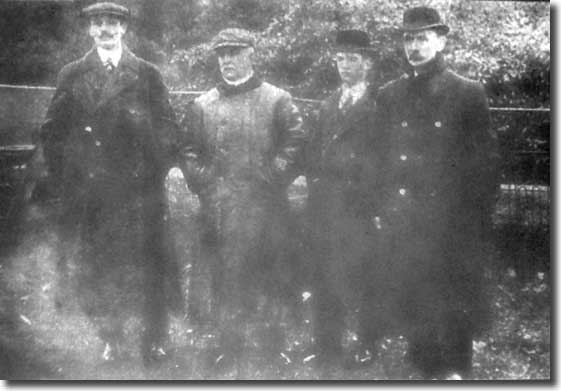 proceeding
would be to raise debenture loans of £12,000. The directors had agreed
to raise a substantial portion of this money, but they wanted shareholders
to raise amongst themselves and their friends the sum of £4,000.
proceeding
would be to raise debenture loans of £12,000. The directors had agreed
to raise a substantial portion of this money, but they wanted shareholders
to raise amongst themselves and their friends the sum of £4,000.
If the scheme were to fail it would be disastrous, and Hepworth said that he thought as sportsmen they would admit that it was unfair that the directors should bear the whole brunt. He added that there were between 300 and 400 shareholders in the club and if each of them would do their best, it would go a long way towards raising the £4,000.
Joe Henry explained that the dilemma in which the directors found themselves began with the heavy costs of developing the Elland Road ground and stands. It proved difficult to borrow money from the bank and the directors transferred to a new bank and signed a guarantee for £7,000. After the losses of the previous season they were faced with further pressure from the bank and there was no other scheme to save them other than the one being proposed. Henry believed that the proposals would allow them to get over their difficulties and set them on the way to prosperity.
In reply to a question from the activist shareholder, Alf Masser, Hepworth told the meeting that the Elland Road ground belonged to him, but he was prepared to give the club the option to purchase it at any time at the price he paid for it.
Hepworth moved 'That the scheme for raising £12,000 by means of debentures and debenture stock, carrying interest at 5 per cent, be approved by this meeting, and that the meeting further pledges itself to use its best endeavours to raise the sum of £4,000 towards such issue.'
The resolution was carried and Messrs Riley, Bodlander, Metcalfe, Bromley, Masser and Harrison were appointed as the shareholders' representatives on the committee. Hepworth announced that all the directors were prepared to retire except Mr Preston, with the object of reducing the overall number, but it was decided that they should remain in office until the next meeting was convened.
A fortnight later, there were further discussions at a third meeting at the Grand Central Hotel. The Mercury: 'Mr Alf Masser presided over a large attendance of shareholders, and was supported by all the members of the special committee.
'Mr Masser explained the position in some detail, and the shareholders had been called together to consider a reasonable business proposition for setting the club on its feet by providing it with some more money, and to secure to the shareholders some assets to cover any debentures which might be issued to them.
'Briefly, the scheme agreed upon by the committee was that the shareholders should find £4,000 and certain of the directors would guarantee £8,000 to cover the liabilities of the club and provide a margin of working capital, the whole £12,000 to be covered by debentures; while Mr Norris Hepworth would find £5,000 for the purchase of the ground, grand stands, etc, the freehold of which he would hand over to the shareholders, he himself merely retaining a mortgage on the property for the amount he paid for it.
'The whole point they had to consider, remarked Mr Masser, was whether the club was to be continued or not. If it was to be continued, the scheme drawn up was the best that could be devised. If it was carried through he thought the shareholders would in time see something for their money, while if the club was not continued the shareholders would certainly lose everything, because, if Mr Norris Hepworth exercised the option to which he had succeeded, the whole of the grounds and everything on them would become his property.
'In addition to the financial terms arranged, Mr Masser also pointed out that the directors had agreed to pass a special resolution at their next annual meeting, reducing their number to five, and of these five only one was to represent the gentlemen who were finding the £8,000, while the other four were to be appointed by the shareholders, thus giving the shareholders full control of the club. It was probable that Mr Norris Hepworth would be the representative of those who were finding the £8,000, and he was certain that Mr Hepworth was a gentleman and a sportsman whom they did not want to lose. (Applause) With regard to the other four they did not want to lose Mr Henry, but the shareholders must be united in choosing their representatives or some of the old directors would be returned, and if they were the club would go back to a worse position than it was in even now.
'In his opinion, all that was needed was that the £4,000 should be raised, and that some enthusiasm should be put into the club to ensure it a prosperous future.
'There was only one way out, and that
was to get their hands down and give the club a chance. Mr Norris Hepworth,
he thought, was showing the true sportsman's spirit, even though he had
lost 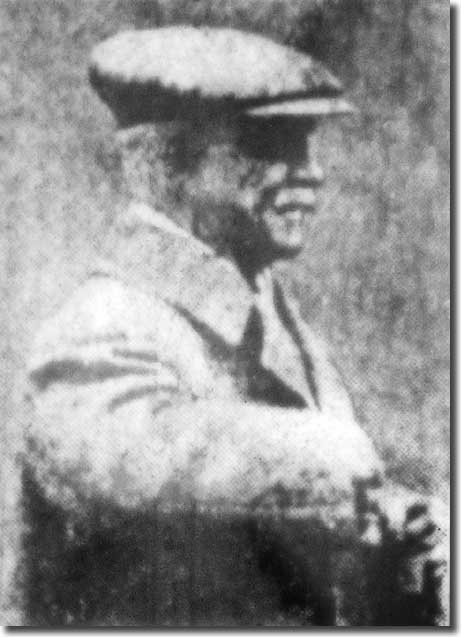 thousands
where they had only lost £10. (Hear, hear.)
thousands
where they had only lost £10. (Hear, hear.)
'Mr Tom Coombs said it would be a fatal mistake to wind up the club, because it would be almost impossible for a new club to get into the Second League. He thought the suggested scheme was an extremely good one, and he moved a resolution expressing appreciation of the efforts of the committee, approving the scheme they had drawn up, and pledging the meeting to use every endeavour to find the £4,000 to enable the scheme to be carried out. Mr King seconded and after some further discussion the resolution was adopted with only one dissentient.
'Mr Masser stated that if the £4,000 was raised there would be from £1,000 to £1,500 available to get new players, if need be, and to work the club. But he appealed for a unanimous vote, and in response the one dissentient withdrew his opposition, and the resolution was adopted unanimously.'
The adopted scheme was as follows: 'Mr Hepworth agrees to exercise the option which he holds by purchasing the ground and having it conveyed to the club instead of to himself, takes a mortgage on the same for £5,000 (the amount which will actually be required to purchase the ground). The bank overdraft of £8,000 will be paid off by the directors and debentures bearing 5 per cent per annum will be issued to cover this amount. The shareholders have, at a meeting duly convened, pledged themselves to use their best endeavours to raise a sum of £4,000 (to be secured by debentures also bearing 5 per cent per annum, ranking equally with those taken by the directors).'
The scheme was not a success and the club continued to suffer crippling financial problems. By September 1911 there was speculation that the only possible solution would be to liquidate the company, with existing shareholders forfeiting their holdings, and form a completely new organisation. It was a radical solution and Alf Masser sought instead to wipe out the debts by raising £16,000 in new funding.
Masser pointed out that when the company was formed in 1905, nearly the whole of the capital, £4,500, was expended upon developing Elland Road. It was now proposed that the ground, with all its equipment, should become the absolute possession of the company, serving as security for those subscribers who were prepared to come forward and take up debentures.
As per the Evening Post, Masser estimated that 'to acquire the ground at the present moment, and to relieve the club from all debt, bank overdraft and everything, would involve the raising of £20,000. Mr Norris Hepworth, the chairman of the club, is the largest creditor, and he has made an offer that if the sum of £16,000 can be raised by subscription for debentures - of which he himself will take up £3,000 worth, leaving £13,000 to be subscribed by the public - he will undertake to discharge all the liabilities of the club up to the end of August last.
'The only question that arises now is whether the £13,000 can be found. Mr Masser is hopeful that it can. From the sportsmen of the city he had an encouraging response to the appeal which he made some time ago, and, if the tradesmen of Leeds, who benefit appreciably in an indirect way from the presence of a big football club in their midst, were to do their duty to the club, he thinks the money could be raised. Anyway, if it is not raised, the only possible alternative will be the winding up of the company, for it is impossible to continue the club with that incubus in the shape of an £8,000 bank overdraft, which swallows a matter of between £600 and £700 a year in interest.'
The money was not forthcoming and on 27 March 1912, Leeds City's solicitors, Messrs Hepworth and Chadwick, announced that the club was going into receivership. 'We beg to inform you that this morning Mr Norris Rhodes Hepworth has appointed Mr Tom Coombs, of 14 King Street, Leeds, accountant, as receiver on behalf of the debenture holders of the Leeds City Association Football Club Company Limited. The appointment was served this morning on the club by Mr R Agar Chadwick, solicitor, on behalf of Mr Hepworth and Mr Coombs. Under the appointment all the assets of the club will now belong to Mr Coombs, on behalf of the debenture holders, to whom all moneys must be paid and without whose authority no money belonging to the club can be paid.'
Coombs ran the club for the next three years until a consortium of Leeds businessmen headed by Joseph Connor took over in August 1915.
The Evening Post in March 1912: 'At the commencement of the present football season it was stated that the indebtedness of the club to Mr Norris Hepworth, the chairman, was £10,733, and that the club's total indebtedness to all sources at that date was £13,297. At a special general meeting of the shareholders, held just after the season commenced, the directors submitted a scheme which aimed at the liquidation of the whole of the club's indebtedness by an appeal for fresh capital. New proposals were advanced by the shareholders, however, and a small committee of shareholders was appointed to confer with the directors on the matter, but apparently no substantial result has been forthcoming from the movement. Mr Hepworth is still the principal creditor of the club, and holds the bulk of the debentures. It is understood that a scheme of reconstruction is in contemplation, and that the ultimate result will be to give the club a fresh and more prosperous lease of life.'
On 12 April 1912 the Leeds Mercury reported: 'A public meeting, called by Mr A E Masser, for the purpose of considering a scheme of reconstruction of the Leeds City Football Club, was held last night, at the Grand Central Hotel, Leeds, and was very largely attended. Mr A E Masser presided.
'The chairman said the size of that meeting satisfied him that there was a genuine demand for first class Association Football in Leeds and that they were not going to allow themselves to go under without a very great effort. (Hear, hear.)
'It was only within the last few days that he had been able to get from Mr Norris Hepworth an assurance as to how much he would take to transfer the whole of his present interest in the Leeds City Club. Mr Hepworth had sunk in the club from £14,000 to £15,000. That amount would include the sum of money which would be necessary to clear the club at the present moment from all debt. Mr Hepworth had offered to him to transfer his interest if he (the speaker) found a gentleman with £7,000. He had hoped to be able to tell them that night that he had found such a gentleman. He had been in touch with two or three gentlemen, and the most he could tell them was that they were all nibbling, but he had not yet had a genuine bite, though he did not despair. He had taken upon himself to find such a gentleman with £7,000 who would come forward and purchase Mr Hepworth's interest in the club.
'He could offer to any such purchaser a team of players who had been valued at from £3,500 to £4,000. The stands and ground equipment had been valued at £4,000, so that he was able to offer in bona fide cash value £8,000 for the £7,000 he was asking. In addition, he wanted £3,000 from the old shareholders and the public, and with that sum of money he was certain the future welfare and success of the club was assured.
'The chairman further stated that the
ground was not at present vested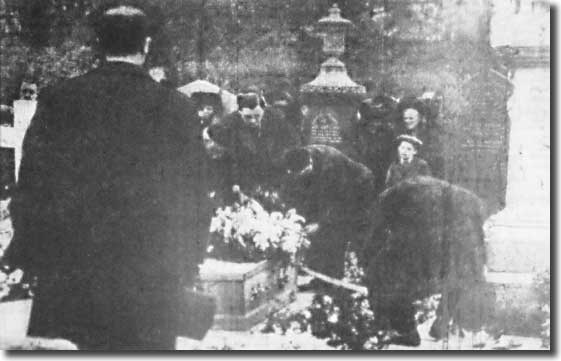 in Mr Hepworth, but he had the option of purchasing it, and would transfer
to the club that option. The ground would cost £4,500, of which it was
proposed to leave £3,500 on mortgage until they were in a better position
than at present.
in Mr Hepworth, but he had the option of purchasing it, and would transfer
to the club that option. The ground would cost £4,500, of which it was
proposed to leave £3,500 on mortgage until they were in a better position
than at present.
'Discussion took place, and various suggestions were made by members of the meeting, an individual who said he came from Stoke remarking that the issue of £1 shares had proved very beneficial to the Stoke club.
'The chairman said it was proposed to re-float the company with a capital of £10,000, and to issue at first £3,000, on the principle mentioned by their friend from Stoke, 5s to be paid on allocation and the rest when required.
'Mr T Coombs proposed that "This meeting heartily endorses the scheme of reconstruction put forward by Mr Masser, and pledges itself by all means in its power to assist in raising the necessary funds to place the club in a sound financial condition." This was seconded by Mr Jennings, and carried unanimously.'
Despite all the schemes, negotiations and aspirations, Leeds City never managed to extract themselves from their financial strictures and continued to totter uncertainly from crisis to crisis, the whole time growing more and more dependent on the seemingly infinite generosity of Norris Hepworth. It could not go on for ever.
Early on the morning of 20 February 1914, Hepworth was found dead at his home in Torridon, Headingley. His health had been poor for some time but it was only within the preceding two or three days that he had become confined to bed. The cause of death was 'internal haemorrhage, and so sudden was the seizure that he passed away before the doctor could arrive'. His death came as a great shock.
Hepworth, who had twice been married, left a widow, five sons and three daughters.
He was buried four days later at Lawnswood Cemetery in North Leeds; there were hundreds of mourners in attendance and some eighty wreaths on display. In addition to members of the Hepworth family, there were representatives of J Hepworth & Son, the Leeds Wholesale Clothiers Association, the Yorkshire Liberal Newspaper and Publishing Company Limited, the North West Ward Liberal Association, the Central Liberal Club, the old Leeds Clarendon Club, the Yorkshire County Cricket Committee, the Leeds Cricket and Football Club, the Hepworth Cup Competition and Leeds Cricket League. Representing Leeds City were Tom Coombs and his wife, manager Herbert Chapman, directors J W Bromley and J C Whiteman and players Billy McLeod, Fred Croot, Jimmy Speirs and George Law.
The outpouring of grief was sincere and a fitting testimony to a great patron of sport in the city of Leeds. The Yorkshire Evening Post: 'In later times it was Association Football that claimed his interest, but whether it was football or cricket, or any other branch of sport, he was always ready and willing to give most generous aid.
'As most Leeds City followers will remember, it was on representation being made to Mr Norris Hepworth that he joined the directorate of the Leeds City Football Club, and it was really his consent to do this that enabled the directors of the club at that time to proceed with the scheme they had in hand.
'Exactly how Mr Hepworth's death will
affect the position of the Leeds City Club can only be conjectured, but
it may be supposed 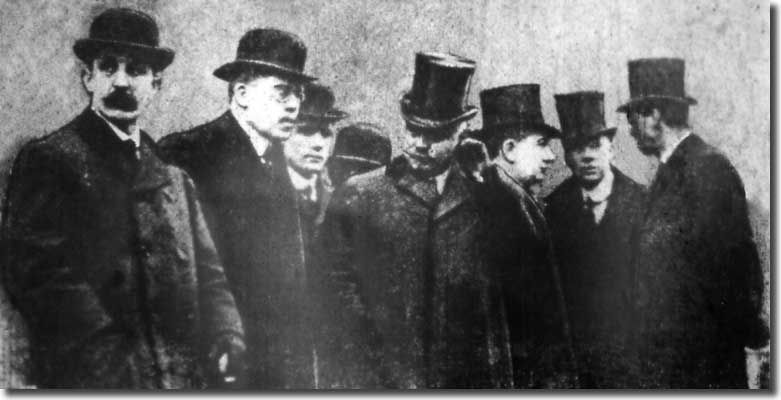 for
the time being that the executors will not interfere with the running
of the club which is in the hands of Mr Tom Coombs as Receiver.
for
the time being that the executors will not interfere with the running
of the club which is in the hands of Mr Tom Coombs as Receiver.
'He became chairman of directors and retained that position right up to the time of his death. He always took a keen interest in the doings of the team, and it had to be something very important that interfered with his attendance at the matches, either at Elland Road or on distant grounds.
'All his life he had taken an enthusiastic interest in cricket, and for many years that game had in him one of its most generous patrons. In his early days, he played regularly and for some years acted as captain of the Leeds Club. The Hepworth Cup, which is played for annually by some of the leading clubs in the city, is a standing testimony to the keen interest he took in the game locally; and there are many other smaller trophies which he provided to encourage interest in the game. He was one of the representatives of the Leeds district on the County Club Committee.'
However, it was Hepworth's generous financing of Leeds City AFC that was his most lasting memorial. Even in the few days before his death he was happy to sanction the expenditure of £1,000 by manager Herbert Chapman on the signing of Huddersfield Town's classy full-back and captain, Fred Blackman.
The sad passing of a great man threw the entire future of the club into great doubt with Tom Coombs now solely responsible for keeping it afloat.